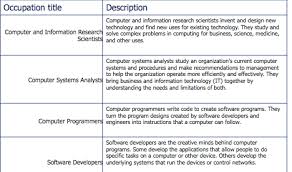Exploring the Role of a Software Engineer in Modern Technology
The Role of a Software Engineer in Today’s Tech Industry
In the fast-paced world of technology, software engineers play a crucial role in designing, developing, and maintaining the software applications that power our modern lives. These skilled professionals are responsible for creating innovative solutions to complex problems and ensuring that software systems function efficiently and effectively.
Key Responsibilities of a Software Engineer
Software engineers are involved in every stage of the software development process. From initial concept and design to implementation, testing, and maintenance, their responsibilities include:
- Writing code in various programming languages
- Collaborating with cross-functional teams to define requirements
- Testing and debugging software applications
- Implementing best practices for software development
- Maintaining and updating existing software systems
Skills Required for Success
To excel as a software engineer, individuals need a combination of technical skills, problem-solving abilities, and strong communication skills. Some key skills required for success in this role include:
- Proficiency in programming languages such as Java, C++, Python, or JavaScript
- Understanding of data structures and algorithms
- Knowledge of software development methodologies like Agile or Scrum
- Ability to work collaboratively in a team environment
- Continuous learning mindset to stay updated with evolving technologies
Career Opportunities for Software Engineers
The demand for skilled software engineers continues to grow across various industries, including technology, healthcare, finance, and more. With the ever-increasing reliance on digital solutions, software engineers can explore diverse career opportunities such as:
- Software developer
- Systems analyst
- Data scientist
- IT consultant
- Cybersecurity specialist/liI
In Conclusion…
In conclusion, software engineers play a vital role in shaping the technological landscape we live in today. Their expertise and innovation drive progress and enable businesses and individuals to leverage cutting-edge solutions for a brighter future.
Understanding Software Engineering: Key Roles, Skills, and Career Paths
- What does a software engineer do?
- What skills are required to become a software engineer?
- How can I become a software engineer?
- What programming languages should a software engineer know?
- What is the average salary of a software engineer?
- What career opportunities are available for software engineers?
What does a software engineer do?
A software engineer is responsible for designing, developing, and maintaining software applications to meet specific requirements. They write code in various programming languages, collaborate with cross-functional teams to define project goals, test and debug software systems, and ensure that best practices are followed throughout the development process. Software engineers play a critical role in creating innovative solutions to complex problems and ensuring that software applications function efficiently and effectively to meet the needs of users.
What skills are required to become a software engineer?
To become a successful software engineer, a combination of technical skills and soft skills is essential. Proficiency in programming languages like Java, C++, Python, or JavaScript is crucial, along with a solid understanding of data structures and algorithms. Problem-solving abilities, attention to detail, and the capacity to work collaboratively in a team are also key attributes. Additionally, staying updated with the latest technologies and software development methodologies is vital for continuous growth and success in the dynamic field of software engineering.
How can I become a software engineer?
To become a software engineer, individuals typically follow a structured path that includes obtaining a relevant degree in computer science or a related field. Additionally, gaining practical experience through internships or personal projects can be beneficial in developing coding skills and understanding software development processes. Continuous learning and staying updated with the latest technologies are essential for aspiring software engineers to thrive in this dynamic field. Building a strong portfolio showcasing one’s projects and capabilities can also help in securing job opportunities as a software engineer.
What programming languages should a software engineer know?
Software engineers should have a strong foundation in programming languages to excel in their roles. While the specific languages may vary depending on the job requirements and industry trends, some commonly recommended programming languages for software engineers include Java, Python, C++, JavaScript, and SQL. These languages are versatile and widely used across different domains, making them valuable skills for software engineers to possess. Additionally, familiarity with frameworks and tools associated with these languages can further enhance a software engineer’s capabilities in developing robust and efficient software solutions.
What is the average salary of a software engineer?
The average salary of a software engineer can vary depending on factors such as location, experience, level of expertise, and the specific industry in which they work. In general, software engineers are well-compensated professionals due to their high demand and specialized skill set. According to recent data, the average salary for a software engineer in the United States ranges from $80,000 to $120,000 per year. However, this figure can be higher or lower based on individual circumstances and market conditions.
What career opportunities are available for software engineers?
Software engineers have a wide range of career opportunities available to them in today’s tech-driven world. They can pursue roles such as software developer, systems analyst, data scientist, IT consultant, and cybersecurity specialist. With the increasing demand for digital solutions across various industries, software engineers have the flexibility to explore diverse career paths that align with their interests and expertise. Whether working on developing cutting-edge applications, analyzing complex systems, harnessing data insights, or ensuring robust cybersecurity measures, software engineers play a crucial role in shaping the future of technology and driving innovation across different sectors.











